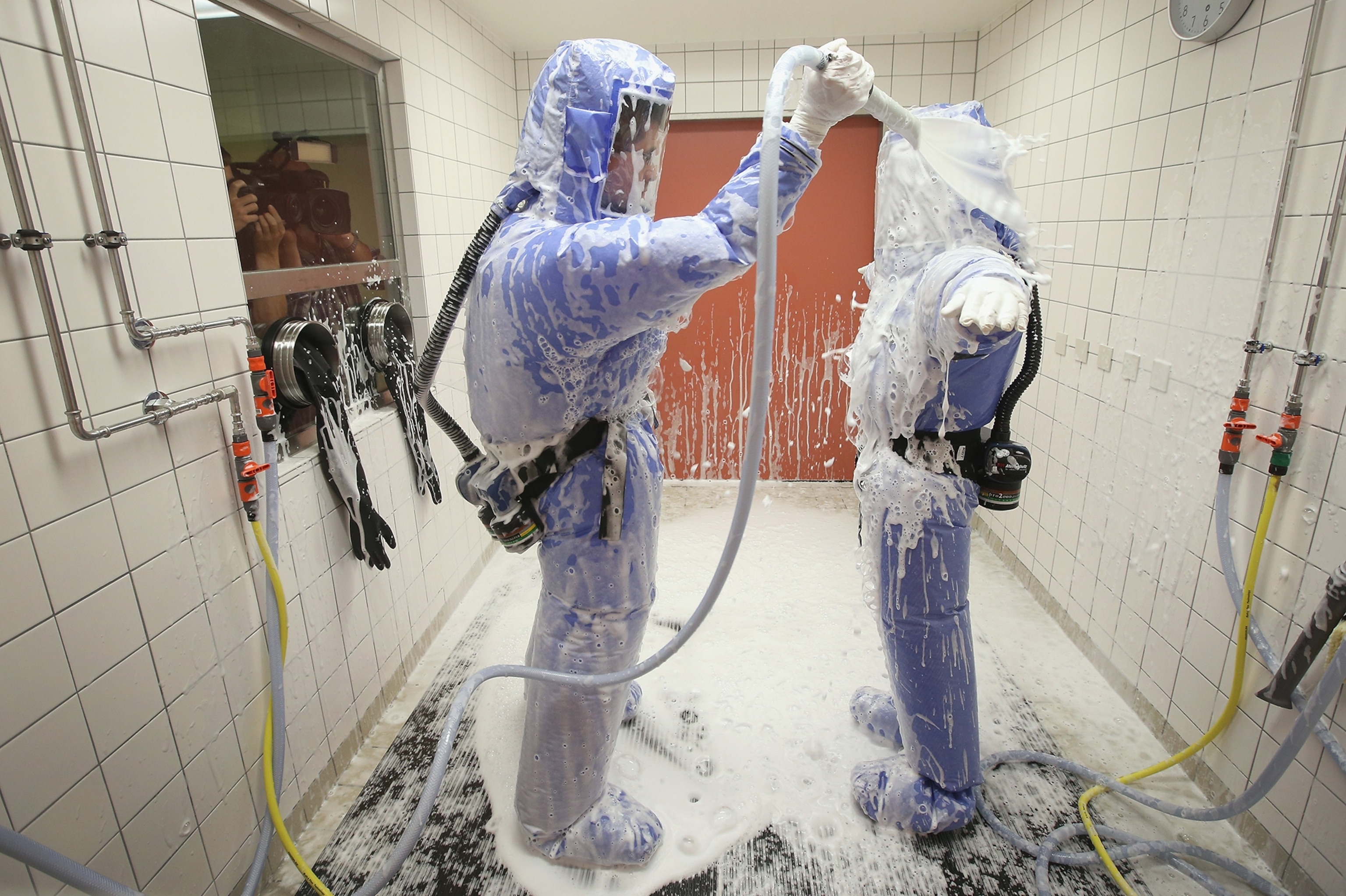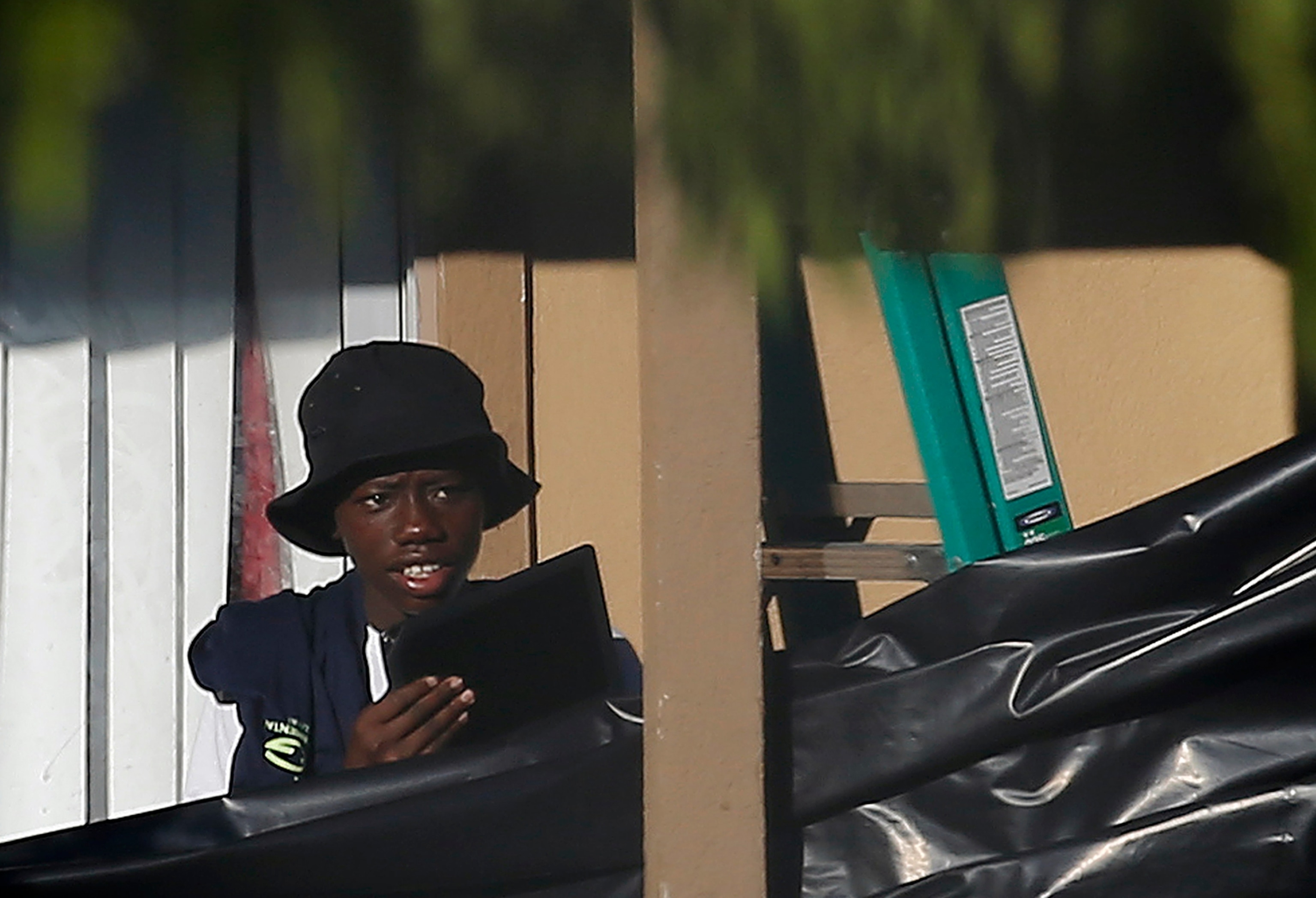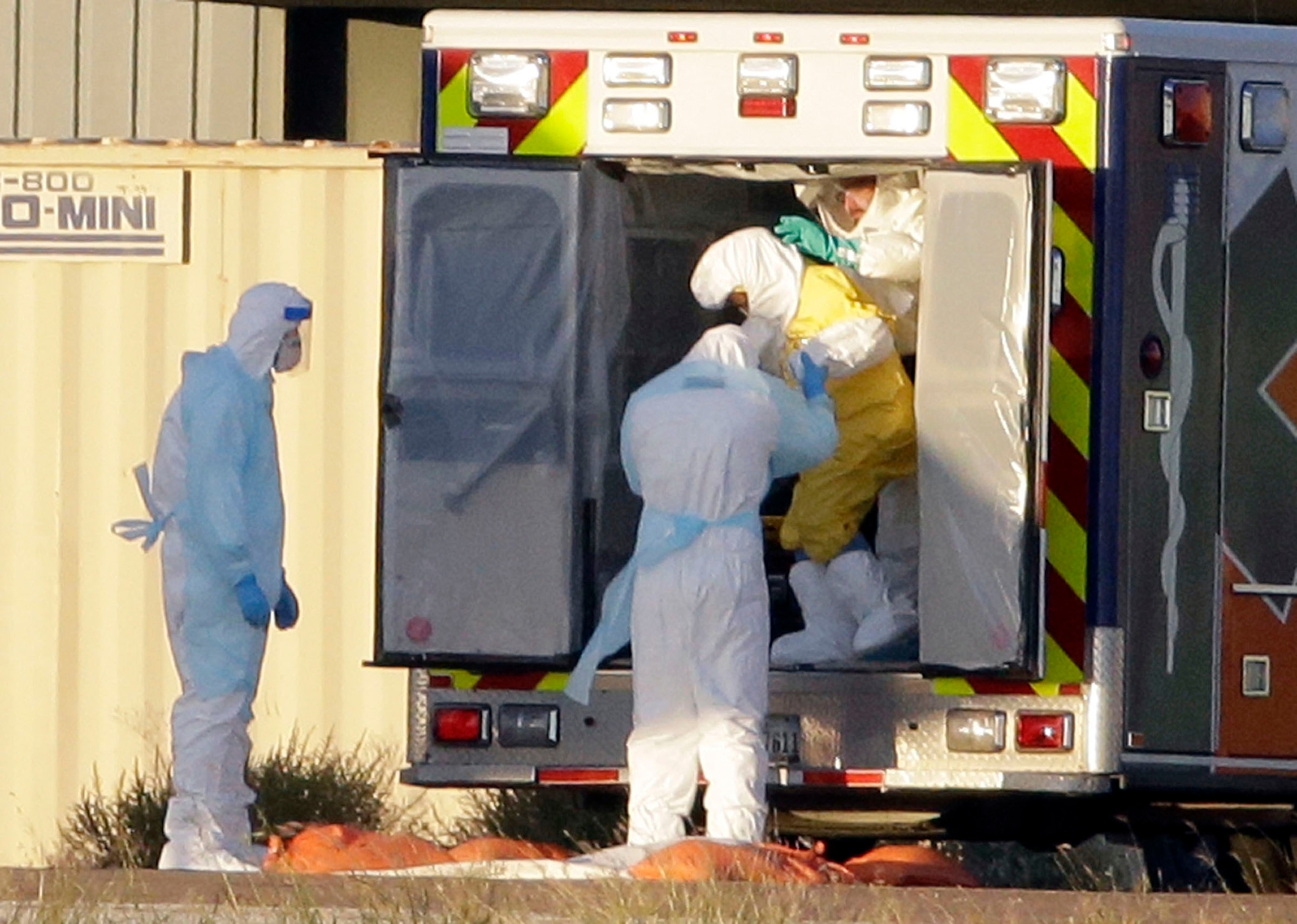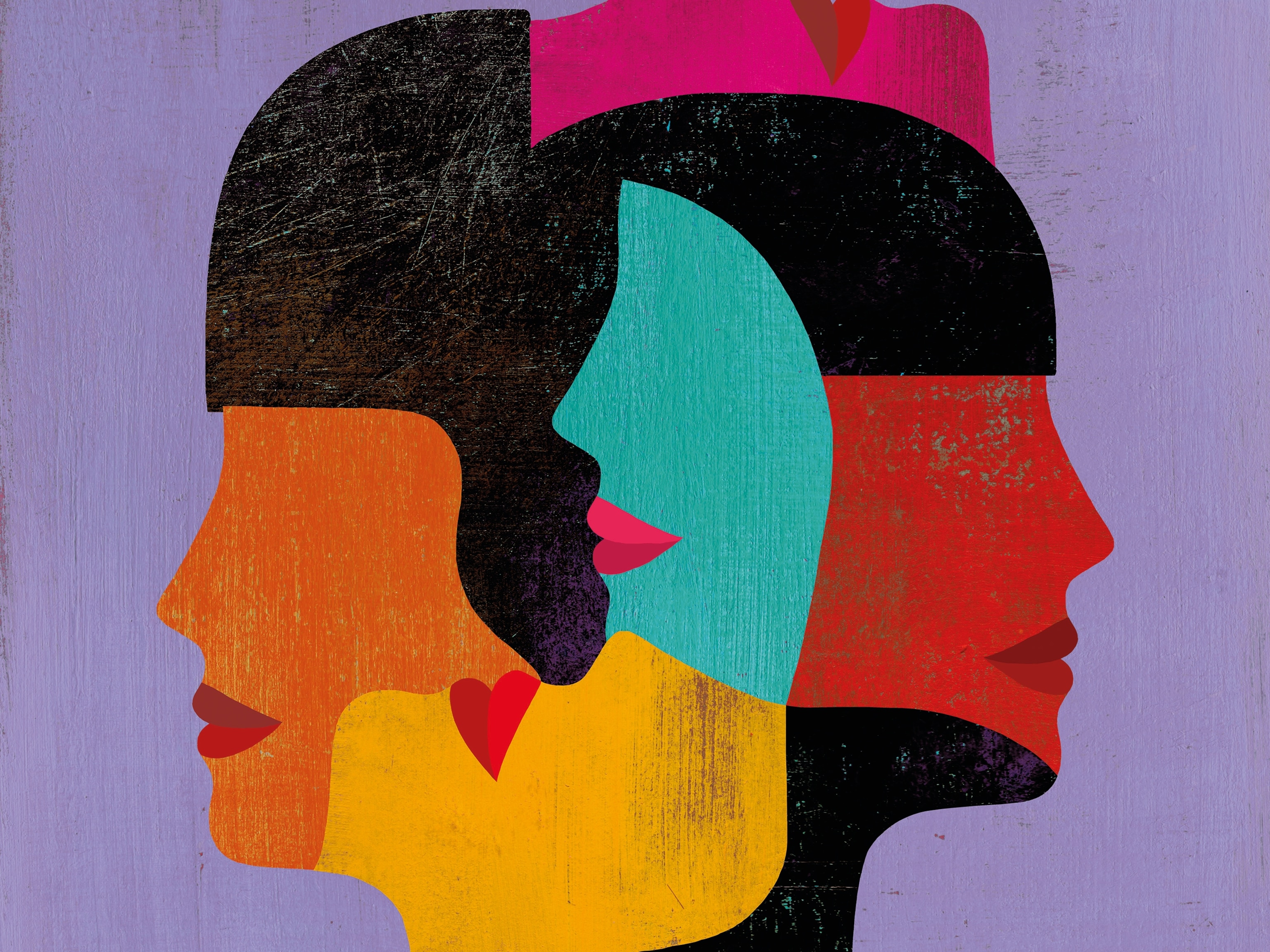
Quarantine Politics: Why Authorities Push Voluntary Isolation in Face of Ebola
Isolation is containing Ebola in U.S., while enforced quarantines have risks.
This week has brought rare good news on Ebola: 43 people who'd been isolated for three weeks after coming in contact with the United States' first Ebola patient, Thomas Eric Duncan, can now resume their lives without fear of infection.
In Nigeria, which isolated everyone who came into contact with their one Ebola patient, Liberian-American Patrick Sawyer, and his caregivers, the outbreak has been declared officially over.
And at noon on Monday Texas Health Presbyterian allowed ambulances to return to the hospital for the first time in more than a week, now that its staffing is no longer limited by quarantines.
Key to all of these positive developments has been a tactic that doctors have been using since biblical times: isolating contagious patients to cut the chain of disease transmission.
The world's worst-ever Ebola epidemic, which has infected at least 9,100 people in Liberia, Sierra Leone, and Guinea and has killed at least 4,500, is far from over. Unless more is done to stop the outbreak, there could be up to 10,000 new cases per week by year's end. (Related: "Ebola Epidemic Could Top a Million Victims If Not Contained, CDC Warns.")
Still, as the world waits for an Ebola vaccine and drug treatments to be proved effective, isolating the infected is crucial to stopping the virus's horror. The two Dallas nurses who were infected were moved from Texas Presbyterian to other hospitals with more experience treating infectious diseases, the National Institutes of Health Clinical Center in Bethesda, Maryland, and Emory University Hospital in Atlanta, Georgia, which released its third Ebola patient Monday.
But isolation can be more complicated than it sounds. Quarantine means different things to different people. And as more Americans who fear that they've been exposed isolate themselves voluntarily—or demand that others go into isolation—those differences raise ethical and medical questions. (Related: "Amid Ebola Panic, Separating Fact From Fiction.")
The transmission of Ebola from Duncan to two nurses at Texas Presbyterian, meanwhile, showed that certain procedures must be strictly followed for quarantine to work. (Related: "Mistakes and Reversals Shake Trust in Ebola Response, in Dallas and Beyond.")
Yet health authorities continue to favor voluntary isolation instead of strictly enforced quarantines, saying the virus is not contagious until the person is suffering symptoms and enforced quarantines can do more harm than good.
"If you make people feel as if they will be stigmatized and outcast and scapegoated, they're not going to come forward the next time someone gets sick, and that would be a disaster," said Wendy E. Parmet, director of the health policy and law program at Northeastern University in Boston.

Voluntary Isolation
Aside from four people who shared an apartment with Duncan in the early days of his illness, the U.S. government has kept all quarantines voluntary. The fact that those four did not fall ill despite their exposure shows that casual contact, such as sharing an airplane, with someone before they are significantly symptomatic carries very little risk, said Amy Fairchild, a professor of sociomedical sciences at Columbia University's Mailman School of Public Health in New York City.
Instead of enforced quarantines, public health officials have been asking anyone potentially exposed to Ebola to go into voluntary isolation. Depending on their level of exposure to the patients, they are told to monitor their temperature twice daily, avoid public transportation, and—if they had close exposure—avoid all public places, such as grocery stores and theaters. (Related: "Ebola: Tracking the Outbreak.")
Texas officials have said that the remaining workers who cared for Duncan or came into contact with his body or samples would be asked to sign pledges not to use public forms of transportation, go to public places or restaurants, or shop in stores until the end of the virus's 21-day incubation period on November 7. The notices warn that violators "may be subject" to a state-ordered quarantine.
And the U.S. Centers for Disease Control and Prevention has said that anyone who may have been exposed to Duncan or the nurses who fell ill after they cared for him should stay away from airplanes, cruise ships, buses, and shopping malls—anywhere there are large groups of people.
For those entering voluntary isolation, meanwhile, parameters can vary from person to person.
NBC News chief medical editor Nancy Snyderman came under fire last week when she violated her own voluntary quarantine by driving to a neighborhood restaurant. She reportedly stayed in the car, but a colleague walked into the restaurant.
Snyderman, recently back from reporting in Liberia, had said she and her crew would isolate themselves for 21 days after one of their freelance cameramen, Ashoka Mukpo, came down with the infection. Mukpo is now recovering from the virus in Nebraska Medical Center in Omaha, and is expected to be released within the next few days.
Despite the obvious risks, Northeastern's Parmet said she agrees with the idea of voluntary isolation. And quarantine, she said, should be a two-way street, with people who voluntarily distance themselves receiving certain things in return.
For instance, she argues that anyone who must miss work should be paid and guaranteed their job: "We want people to engage in social distancing, but we need to make it easier for them to do that."

Quarantine's Costs
Quarantines fell out of favor in the past century when modern modes of transportation made it even harder to contain people, said Jesse Bump, an assistant professor in the department of international health at Georgetown University's School of Nursing and Health Studies in Washington, D.C.
In one neighborhood of Monrovia, Liberia's capital, with 70,000 residents, an attempted quarantine failed miserably in August, when people responded violently to the "cordon sanitaire" and a teenager was killed.
Quarantine has a "horrible history" in Africa, Bump said, where it was used to legitimize colonial or racist policies. In the early 1900s, quarantines around Lake Victoria led to 200,000 deaths from sleeping sickness, he said.
During the Toronto SARS outbreak in 2003, quarantines were used, though some later criticized them as ineffective. SARS is much more contagious than Ebola because it transmits through the air, but people needed to quarantine themselves for only 10 days.
Stephen Morse, a professor of epidemiology at the Mailman School of Public Health, said all but two out of about 15,000 people willingly followed voluntary quarantines.
"One of them didn't understand [the instructions], and the other was the type of person who doesn't do anything he's told," Morse said. "The vast majority did not need the force of guns or guards or gates, once it was explained to them what they were expected to do in terms of quarantining themselves."
Morse questioned whether those who shared the apartment with Duncan would have needed to be forcibly quarantined if the government had done a good job explaining why such isolation was recommended.
Forced quarantine might also discourage health care workers from volunteering to help fight Ebola in Africa.
George Salloum, vice president of finance and operations for SIM, an international medical missionary organization, said adding another three weeks to time in service to allow for quarantine might discourage some people from volunteering or cut the amount of time they could serve.
"Anything you do to restrict movement of people back and forth or keeping them from getting back to work, it could have an impact on the flow of people willing to serve overseas," he said.
Quarantining starts to sound like a terrible idea when it might pertain to you, said Sunny Pillow, a Dallas resident whose husband is an obstetrician.
"My husband said, 'Thank God I wasn't working there,'" Pillow said. Their daughter is in an upcoming school play that she might have had to miss if she were under quarantine.
"I would have killed him if she had to miss that show. When you think about it, how many things do you miss in your life in 21 days?" she went on. "It's a huge disruption."







